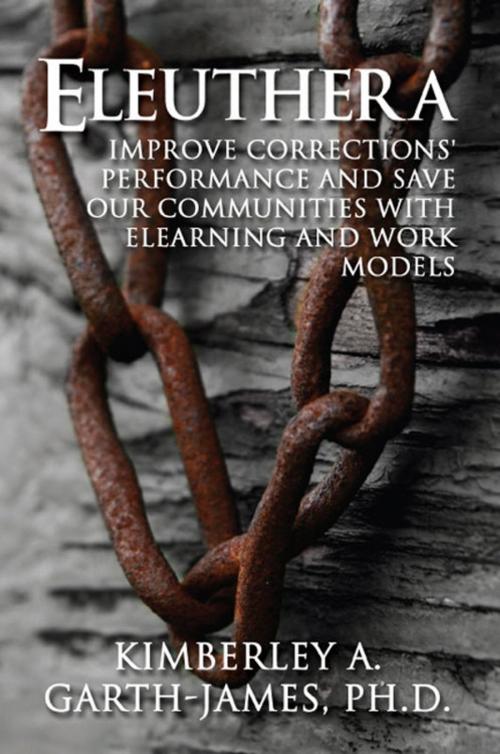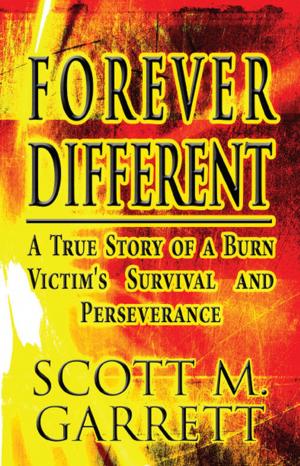Eleuthera
Improve Corrections' Performance and Save Our Communities with Elearning and Work Models
Nonfiction, Social & Cultural Studies, Social Science, Discrimination & Race Relations, Reference & Language, Law, Education & Teaching| Author: | Kimberley A. Garth-James & Ph.D. | ISBN: | 9781627722995 |
| Publisher: | PublishAmerica | Publication: | May 13, 2013 |
| Imprint: | PublishAmerica | Language: | English |
| Author: | Kimberley A. Garth-James & Ph.D. |
| ISBN: | 9781627722995 |
| Publisher: | PublishAmerica |
| Publication: | May 13, 2013 |
| Imprint: | PublishAmerica |
| Language: | English |
Dr. K. A. Garth is an advisor on victims policy on the United States Sentencing Commission, and academic Program Director, Masters in Public Administration Program at CSU (online). She argues that as the various aspects of corrections systems are failing, there are questions about locking away and warehousing offenders. Policies that shut-away many multicultural offenders including women caring for the children of our future, are not the most efficient use of public funds. Education models using distance technology (eLearning) and curricula infused with critical literacy theory and joint venture work projects that teach marketable job skills and pay marketable wages for taxes, victims restitution and forced inmate savings, are pragmatic alternatives to just lockem up. As an independent observer for the Bureau of Justice Assistance, she witnessed first-hand the benefit to offenders. The Chains of Eleuthera model suggests changes in corrections management and administration to impede destabilization of communities where offenders are returning unprepared to compete for employment and provide for their families. Jamal is the fictional character used to inform the reader of the issues and paradoxes of operating American corrections. Readers will want to get involved and advocate for use of efficient and effective management practices that are described in this book to return offenders back to our communities as social assets rather than predators. Restorative Justice and community restoration involves the offender, victim and our community. Scholars, justice professionals and politicians demand the use of a common sense approach to making criminal laws and policies. This book intends to show that there is another, perhaps more sophisticated and sensible, way to make decisions about crime control and prevention in America. Correctional bureaucracies are essential to ideals of rehabilitation and restoration of justice for the offender, victim and the community. Dr. Garth has years of experience in the corrections policy arena, and combined with sound evaluation of the research, and testimonials from practitioners and offenders, and victims, the book findings should appeal to a broad readership. Special Master Alan Breed has written the forward to the book in hopes of encouraging dialogue among correctional professionals and policy makers regarding new approaches to offender rehabilitation. This book is makes a contribution to shaping the future of corrections by using better policies and practices.
Dr. K. A. Garth is an advisor on victims policy on the United States Sentencing Commission, and academic Program Director, Masters in Public Administration Program at CSU (online). She argues that as the various aspects of corrections systems are failing, there are questions about locking away and warehousing offenders. Policies that shut-away many multicultural offenders including women caring for the children of our future, are not the most efficient use of public funds. Education models using distance technology (eLearning) and curricula infused with critical literacy theory and joint venture work projects that teach marketable job skills and pay marketable wages for taxes, victims restitution and forced inmate savings, are pragmatic alternatives to just lockem up. As an independent observer for the Bureau of Justice Assistance, she witnessed first-hand the benefit to offenders. The Chains of Eleuthera model suggests changes in corrections management and administration to impede destabilization of communities where offenders are returning unprepared to compete for employment and provide for their families. Jamal is the fictional character used to inform the reader of the issues and paradoxes of operating American corrections. Readers will want to get involved and advocate for use of efficient and effective management practices that are described in this book to return offenders back to our communities as social assets rather than predators. Restorative Justice and community restoration involves the offender, victim and our community. Scholars, justice professionals and politicians demand the use of a common sense approach to making criminal laws and policies. This book intends to show that there is another, perhaps more sophisticated and sensible, way to make decisions about crime control and prevention in America. Correctional bureaucracies are essential to ideals of rehabilitation and restoration of justice for the offender, victim and the community. Dr. Garth has years of experience in the corrections policy arena, and combined with sound evaluation of the research, and testimonials from practitioners and offenders, and victims, the book findings should appeal to a broad readership. Special Master Alan Breed has written the forward to the book in hopes of encouraging dialogue among correctional professionals and policy makers regarding new approaches to offender rehabilitation. This book is makes a contribution to shaping the future of corrections by using better policies and practices.















